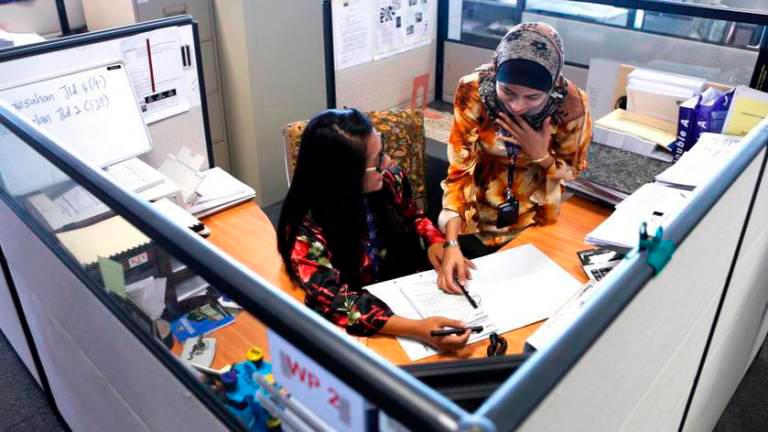PETALING JAYA: Senior citizens who have yet to build a big enough nest egg are in for trouble.
Short of a sprinkling of exceptions, the demand for retirees in the workforce is extremely low despite their years of experience and knowledge.
Industry experts attribute the fact to the prevailing job market culture and cultural differences.
Malaysian Employers Federation executive director Datuk Shamsuddin Bardan pointed out that the demand for senior citizens “is weak and not encouraging”.
He said under the Code of Conduct for Industrial Harmony –an agreement between the Human Resources Ministry and the Malaysian Council of Employers’ Organisations – the seniors could end up being the biggest losers in a tight job market. This is especially so under prevailing conditions caused by the economic fallout from the Covid-19 pandemic.
“If a company wants to reduce its workforce, the seniors, particularly those who are past retirement age, will be the first to go,” he said.
The code states that age is one of the main criteria for selection of employees for retrenchment.
Many companies were adding seniors into their workforce as employer contributions to the Employees Provident Fund drop from 11% to 4% for those past retirement age.
These employees were usually hired under contract, perhaps for a year or two, although there are some contracts that may be terminated or have to be renewed after only three months. Shamsuddin said this is possible only when the job market is still vibrant.
“Things have changed and seniors are now overlooked because of their age and (presumably lower) productivity level.”
He expressed hope that the government would emulate Singapore’s re-employment policy, where the retirement age is 62 but citizens can work up to age 67, depending on their health and work performance.
Managing director of recruitment agency Asia Recruit, Damien Lim, said job opportunities are better for senior citizens in Western countries, a sign of the cultural difference between the West and the East.
“There are positions such as bookkeepers and office managers that are usually occupied by senior people. But in Malaysia, those positions are not readily available.”
The positions Lim’s clients want to fill are usually not meant for seniors.
According to the US Bureau of Labour Statistics, about 40% of those aged 55 and above were working as of 2014 and that figure is expected to increase until 2024, while a recent research by American think-thank Pew Research Centre indicates that people aged 65 and above are least likely to lose their jobs compared with those in the younger age groups.
Another factor is the wage structure. Senior citizens are paid much higher elsewhere compared with Malaysia.
Lim pointed out that in Singapore, seniors take up menial jobs such as toilet cleaners at airports because they are paid reasonably well. But in Malaysia, these jobs are taken up mostly by foreigners because of the low remuneration.
“The future is bleak for a senior citizen who still needs a job, unless his expertise is essential and difficult to come by,” Lim said.













